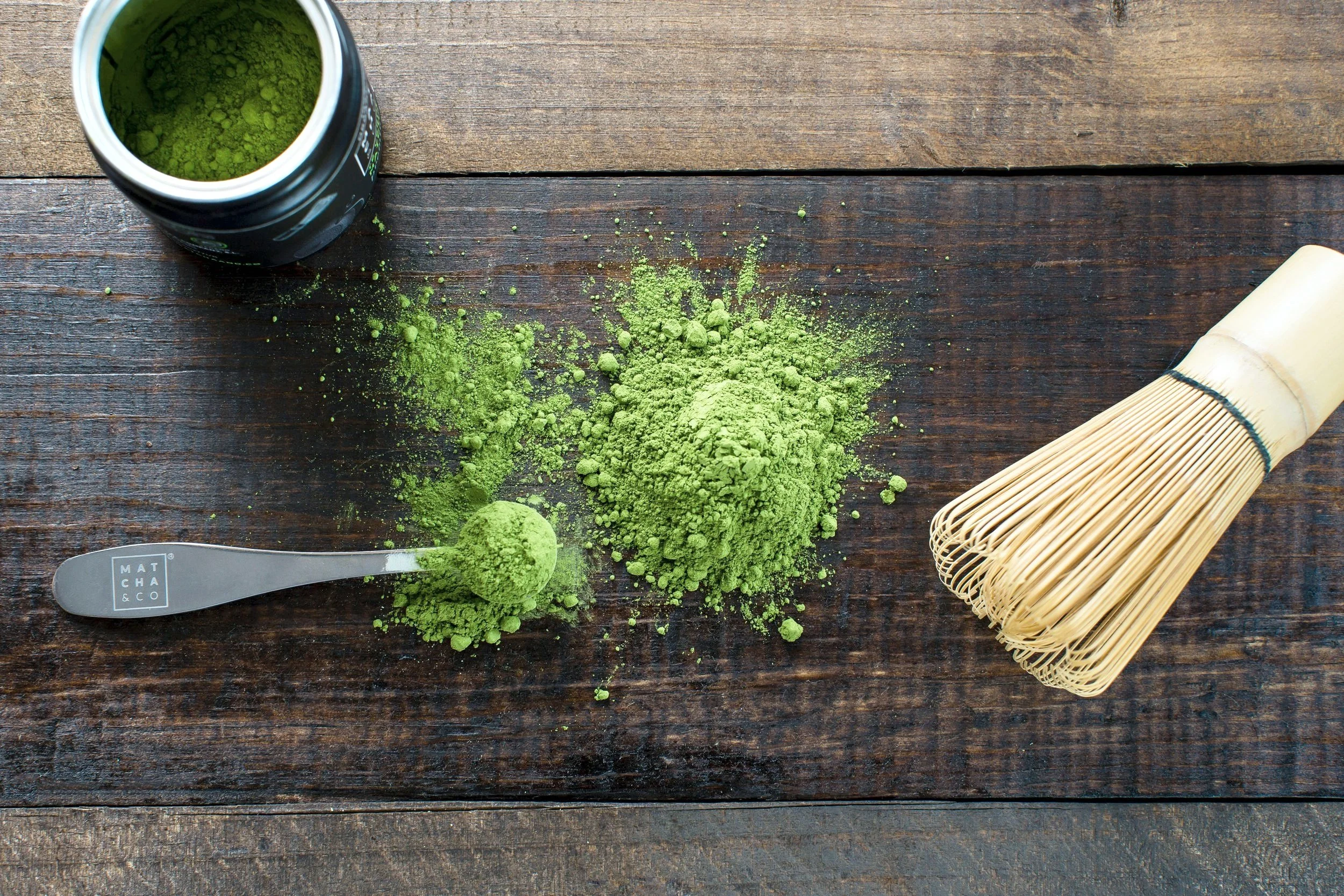The Health Benefits of Matcha
Matcha: A Delicious Healthy Way to Start Your Day
Let’s take a moment to appreciate matcha, this beautiful, vibrant green tea powder that’s not just trendy, but truly transformational. If you haven’t tried it yet, get ready. Matcha isn’t just another health fad; it’s a centuries-old superfood that offers a powerful combination of physical, mental, and emotional benefits, all wrapped up in one earthy, comforting cup.
But here's the most important thing you need to know: if it’s not grown in Japan, it’s not real matcha. Authentic matcha comes exclusively from Japan, where the tea plants are cultivated under just the right conditions, shade-grown for weeks to boost their chlorophyll, hand-harvested, and then stone-ground into a fine powder. This traditional process is what gives matcha its rich flavor, vibrant color, and superior nutritional profile.
Now, let’s get into why matcha is worth making a daily habit.
1. Clean, Focused Energy Without the Jitters
One of the biggest reasons people love matcha is the way it makes you feel. It has caffeine, about 70 mg per cup, but unlike coffee, it won’t leave you with a racing heart or a midday crash. That’s because matcha contains L-theanine, a naturally occurring amino acid that works alongside caffeine to promote a state of calm alertness.
You get energy, yes, but it's smooth and sustained, not spiky. You feel awake, focused, and centered for hours. It’s perfect for work, creative projects, workouts, or just navigating a busy day with clarity and calm.
2. A Powerhouse of Antioxidants
Matcha is one of the most antioxidant-rich foods on the planet. Just one cup can deliver up to 137 times the antioxidants of regular green tea. One of the most important antioxidants in matcha is EGCG (epigallocatechin gallate), which has been widely studied for its anti-inflammatory and disease-fighting properties.
These antioxidants support:
Cell repair and regeneration
Slower aging and glowing skin
Improved immune function
Reduced risk of chronic diseases
A more efficient metabolism
Matcha is like a shield for your body, protecting you from the inside out.
3. Boosts Brain Function and Mental Clarity
Thanks to that L-theanine-caffeine duo, matcha is a favorite among students, creatives, and entrepreneurs. Studies show that it can enhance:
Memory
Attention span
Reaction time
Overall cognitive performance
L-theanine increases the production of alpha waves in the brain. Those are the ones linked to calm focus moments. So if you’re looking to stay sharp, centered, and productive, matcha is a game-changer.
4. Supports Detoxification and Gut Health
Matcha’s vibrant green hue isn’t just pretty, it’s proof of its chlorophyll content, which helps your body detox naturally. Chlorophyll binds to heavy metals and harmful chemicals in the body, helping flush them out more efficiently.
Plus, since matcha is minimally processed and full of gentle plant compounds, it’s easy on the digestive system. Many people report improved digestion, fewer sugar cravings, and less bloating after switching from coffee to matcha.
5. Great for Heart Health and Metabolism
Drinking matcha regularly can support heart health by:
Lowering bad LDL cholesterol
Reducing blood pressure
Improving circulation
On top of that, EGCG and other catechins in matcha can help boost your metabolism and encourage your body to burn fat more efficiently. That’s why matcha is a favorite in many wellness and fitness routines. It gives you that energized, light-on-your-feet feeling without the crash.
6. Calms the Nervous System & Supports Adrenals
Matcha is especially kind to your nervous system and adrenal glands, which is why it’s a smart alternative to traditional caffeine sources. Unlike coffee, which can spike cortisol and drain your adrenals over time, matcha’s slow-release energy is more supportive and sustainable.
Just be sure to pair it with food (especially healthy fats or protein) to avoid blood sugar dips. Drinking caffeine on an empty stomach will stress your body, no matter how gentle the source is.
Don’t Skimp on Quality: Get the Real Deal
Let’s be clear: only ceremonial-grade matcha from Japan delivers the full spectrum of benefits we’ve been talking about. Anything else, especially culinary-grade matcha or powders from other countries, is likely lower in quality, less nutritious, and often bitter or dull in flavor.
Real Japanese matcha is:
Vibrant green in color
Finely ground powder
Slightly sweet, earthy in taste
Smooth in texture, never gritty
Look for terms like "ceremonial-grade" and "shade-grown in Japan" on the label. If it doesn’t say Japan, skip it.
Want help picking the right one? Check out our curated list of #RopheApproved matcha brands. We only recommend high-quality, authentic options you can trust.
Bonus: Our Go-To Iced Matcha Latte Recipe
Here’s how I like to enjoy matcha, cold, creamy, and absolutely delicious.
Ingredients:
1 tsp ceremonial-grade matcha powder
1/4 cup filtered water
A pinch of Redmond's Real Salt (adds minerals and deepens flavor)
A dash of Mexican vanilla
1–3 tsp pure maple syrup (adjust to taste)
3/4 cup raw milk
Optional: 1 Tablespoon MUD WTR (check this out on our #RopheApproved page)
Ice
Instructions:
In a small bowl, whisk matcha and water until smooth and frothy.
Add salt, vanilla, and maple syrup. Mix well using a bamboo whisk, fork, or handheld frother (my favorite tool for getting it silky-smooth).
Fill a glass with ice and pour in the milk.
Slowly pour the matcha mixture over the top and watch the green swirl into the white. Gorgeous!
Sip, smile, and savor the goodness.
Whether you’re swapping your morning coffee, adding more antioxidants to your routine, or simply looking for a new daily ritual that makes you feel amazing, matcha is the real deal.

